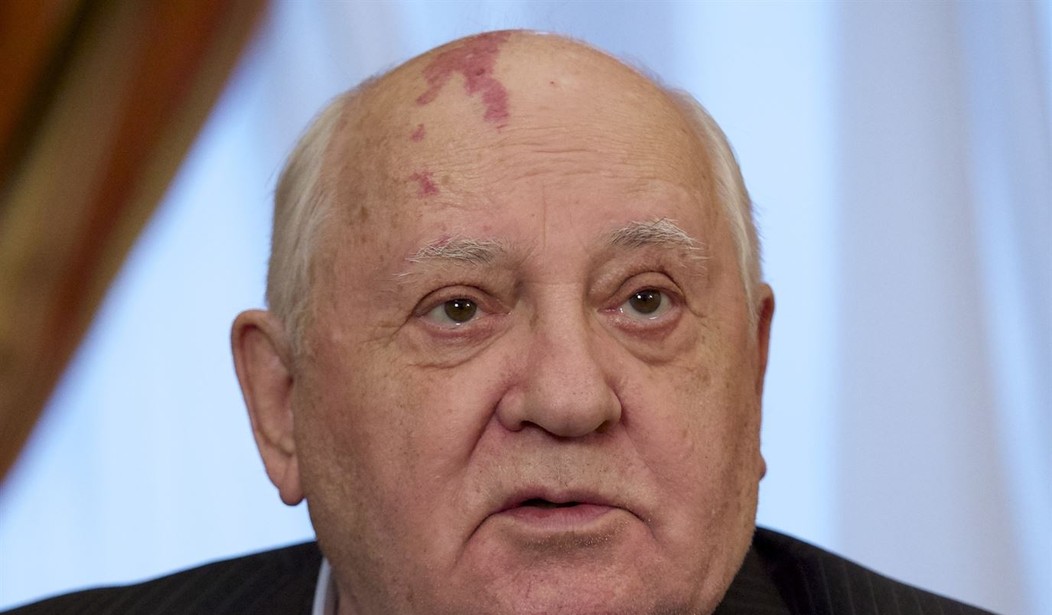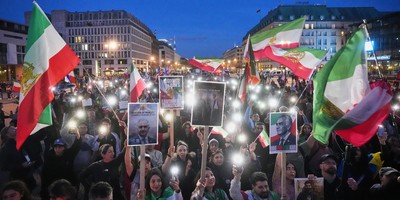Editor's Note: This column was co-authored by Thomas D. Grant.
Among the encomia that poured in this week following the death of Mikhail Gorbachev, President Biden’s pulled out all the stops. Biden praised the late Communist Party General Secretary as “a man of remarkable vision” and “a rare leader” who “had the courage to admit that things needed to change.” Biden added that, as a member of the Senate Foreign Relations Committee during the last days of the USSR, he had seen Gorbachev “do that and more” and attributed to Gorbachev “a safer world and greater freedom for millions of people.”
While praise for Gorbachev is understandable, including the Nobel Prize he was awarded in 1990, historical perspective should temper our judgment. The Free World for decades had feared that the USSR, in pursuit of its geopolitical ambitions and Marxist ideology, would provoke a third world war. Thankfully, Gorbachev was realistic enough to seek a modus vivendi. But ending the Soviet Union was not Gorbachev’s goal.
The people who fought to escape the Soviet “prison of nations” remember this well. It was Gorbachev, they remind us, who sent in tanks against freedom-seekers. One native Russian observes it’s easier to admire Gorbachev the farther one lives from Russia. And Gorbachev’s Soviet Union didn’t end the Cold War. It lost.
Indeed, Gorbachev tried to save the faltering Soviet state. Thanks to the resolve of the United States and our allies, Gorbachev’s tenure ended, instead, with the USSR disappearing and the Soviet republics gaining their independence, Ukraine among them. The West met the new Russia that emerged after Gorbachev with open arms, reflected, for example, in a special cooperation and security relationship with NATO, a tie-in that would have been unthinkable only a short while earlier. Nevertheless, economic and societal free-fall ensued, and the 1990s set the stage for the eventual rise of Vladimir Putin.
Those praising Gorbachev this week also forget how much he agreed with Putin—including with Putin’s desire to revive the Soviet Union. When Putin began his invasion of Ukraine in 2014, forcibly seizing Ukraine’s Crimean peninsula and conjuring fake separatist movements in Donetsk and Luhansk, Gorbachev applauded. He even endorsed Putin’s racist theory that there is no such thing as a Ukrainian nation. Gorbachev imbibed in the worst misreadings of history—in a part of the world where political leaders such as Putin all too often have used history as a pretext for present-day aggression.
Recommended
When Putin’s first assault on Ukraine was getting underway in February 2014, President Obama said that “Russia has a historic relationship with Ukraine, including cultural and economic ties.” This was the wrong signal, because, whatever “ties” Russia might have had with Ukraine, Putin’s own talking points focused on supposed “historic” rights of Russia to Ukraine’s territory. Earlier, in 2008, under the Bush administration, Russia invaded Georgia. And under the Biden administration, Russia has escalated to all-out war. That leaves President Trump as the sole U.S. president this century on whose watch Russia did not invade a neighbor.
Gorbachev didn’t think much of Trump. He thought the United States should have tolerated Russia’s serial violations and remained in the INF treaty. Like Trump’s increase of U.S. oil and gas production and pursuit of LNG export to the EU, not to mention armed support for Ukraine, his response to Russia’s arms control violations pushed back hard. It’s unsurprising that the last Soviet president—and champion of Putin’s expansionist aims—found himself on the opposite side of the Trump administration. Those who want a “safer world and greater freedom” should be clear-eyed about Gorbachev’s legacy and its impact today.
Mr. Ullyot served as deputy assistant to the president for national security affairs and National Security Council spokesman, 2019-21.Mr. Grant served as senior adviser for strategic planning in the State Department’s Bureau of International Security and Nonproliferation, 2019-21, and is author of Aggression Against Ukraine: Territory, Responsibility, and International Law

























Join the conversation as a VIP Member